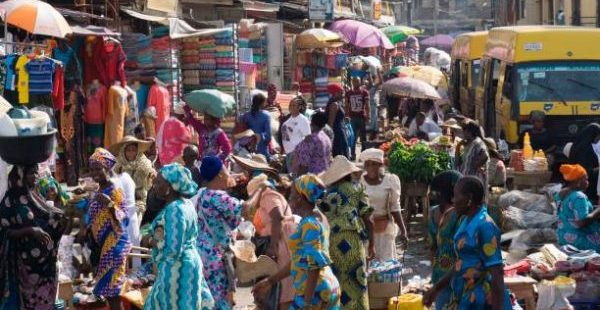Business
Minimum wage review may push up cost of living – FDC

The consistent decline in Nigeria’s inflation rate since January 2017 is projected to take an opposite trend after 15 months of consecutive reduction if the proposed minimum wage review is finally implemented, analysts at the Financial Derivatives Company (FDC) Limited have projected in a recent Economic Bulletin released by the company.
Nigerian inflation had slowed for the 14th consecutive month to 13.3 percent in March from a year earlier, taking the Consumer Price Index (CPI) which measures inflation below the benchmark interest rate of 14 percent for the first time in two years.
According to the report, the minimum wage review and the possibility of budget passage in May will cause higher liquidity and heighten inflationary pressures, “the budget is likely to be passed in May and will thus boost liquidity and heighten inflationary pressures. However, after 15 months of consecutive reduction in inflation, a reversal of the trend may not be farfetched at this time.”
Meanwhile, the headline inflation rate is anticipated to drop for the 15th consecutive month to 12.7 percent in April, reaching the lowest level since March 2016, “the drop is mainly attributable to the waning base year effects. Whilst core inflation is projected to move in tandem with the headline inflation, we expect food inflation to move in the opposite direction driven largely by higher food prices.”
Read also: Nigerian banks record N3tn rise in transaction value, shed 845 staff in Q1
The MoM Inflation is expected to maintain its upward trend due to the commencement of the planting season, increasing by 19 basis points to 1.03 percent (13.09 percent annualized) from 0.84 percent (10.50 annualized) in March due to the commencement of the planting season.
“The uptick in Month-on-Month (MoM) inflation for the second consecutive month alludes to the fact that headline inflation could be moving towards an inflection point. This is coupled with the impending minimum wage review and the 10.5 percent increase in diesel prices to N210/litre, are expected to feed into the inflation level going forward,” the report read.
The Central Bank of Nigeria (CBN) Monetary Policy Committee (MPC) left its main lending rate at a record high of 14 percent since July 2016 in a bid to curtail the upward inflationary trend, which rose to 12-year high at 18.72 percent in January 2017 above the target range of 6 percent to 9 percent, and drive economic growth.
The Financial Derivatives Company Limited is a Lagos-based research firm for business information, economic data, research and analysis.
RipplesNigeria… without borders, without fears
Click here to join the Ripples Nigeria WhatsApp group for latest updates.
Join the conversation
Support Ripples Nigeria, hold up solutions journalism
Balanced, fearless journalism driven by data comes at huge financial costs.
As a media platform, we hold leadership accountable and will not trade the right to press freedom and free speech for a piece of cake.
If you like what we do, and are ready to uphold solutions journalism, kindly donate to the Ripples Nigeria cause.
Your support would help to ensure that citizens and institutions continue to have free access to credible and reliable information for societal development.






















